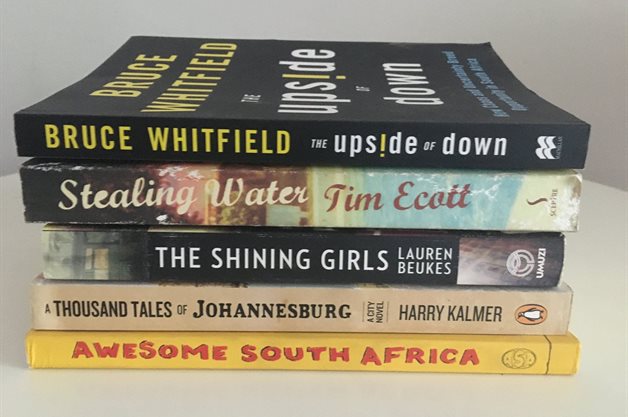#PulpNonFiction: South Africa, the real land of the free and the brave
South Africa is a land of contrasts. A place where fortunes can be made and fortunes can be lost. It is a land of risk and reward. A nation of gold and golden dust.It was with this frame of mind that I read two books this week, Stealing Water, by Tim Ecott and The Upside of Down by Bruce Whitfield.

Stealing Water
Stealing Water is the memoir of an Irish family who immigrated to Johannesburg in the 1970s and fell on hard times (hard enough times to necessitate stealing water from the local petrol station to survive). It reminded me loosely of my own family history (I’m the only person I know whose parent moved to South Africa to get away from the crime in the UK). Stealing Water is profound in that the family did not want to return to a significantly more comfortable life in Ireland because of the freedom and independence South Africa offered them compared to the “grey small minds” back home in Europe (the massive dark irony of a white family finding “freedom” in apartheid era South Africa notwithstanding the contrast between grey, dull, safe Europe and vibrant, dangerous South Africa remains poignant).
The Upside of Down
The Upside of Down is a much more contemporary offer that takes the reader though a whirlwind history of the good, the bad and the ugly of the South African economy. Bruce Whitfield covers stock market scandals, fortunes made, fortunes lost, state corruption sagas and rags to riches stories spanning several decades, from the dawn of democracy until today. It's a dramatic ride (about as dramatic as an economics book can get) yet in spite of all the drama, I came away with a sense of hope and optimism, and a timely reminder that yes, even in 2020, in the midst of multiple converging crisis, it is in times of turmoil and chaos, depression and recession that businesses are built and fortunes are made. And that’s the key. The greater the risk, the greater the potential rewards. The more uncertainty, the less the competition. The bigger the problems, the more business opportunities there are to find a solution.
As Whitfield says:
If you want problems, you are at the right place. South Africa in fraught with problems. Many find them insurmountable and overwhelming. Many are fed up with corrupt bureaucracies and rent-seeking thugs who look to asset their authority for personal gain. That’s all very real. But the tough environment also means that competition is kept out and the problems that present themselves become problems waiting to be solved. South Africa is full of opportunities for those with the skills and desire to get things done.If you can make it in South Africa, you can make it anywhere.
The land of survivors and survivor businesses
Neither book shies away from South Africa’s complexity. Yet both books leave one feeling that in some ways, of all the nations in the world, South Africa in general, and Johannesburg in particular is one of the few places in the world that one can still have adventures, in life and in business. A place where people still have the freedom and opportunity to try new things, start new businesses, fail, learn and get up again. South Africa is a land of survivors. It is a place where people make a plan no matter how little they have or how precarious the future looks. It is a land of optimists (even if it doesn’t feel like it right now) and those optimists still have some fight left in them. It is the optimists and the survivors who will build the new, new South Africa in the aftermath of 2020, and build new businesses and fortunes in the process.
If you are still here, if your business is still open for business, then you are one of those brave survivors, and the future needs you to fight for it.

































